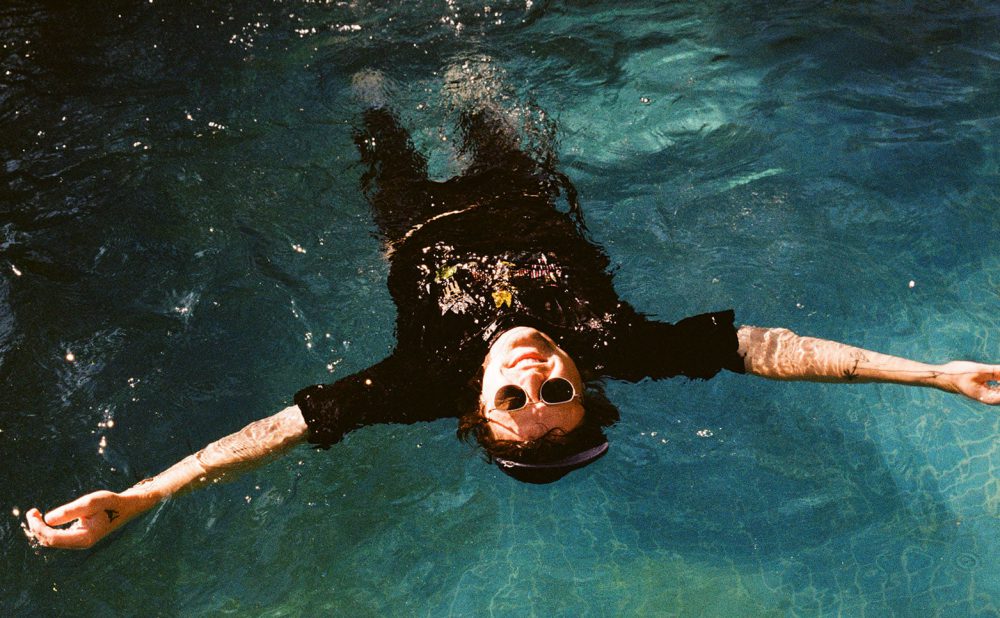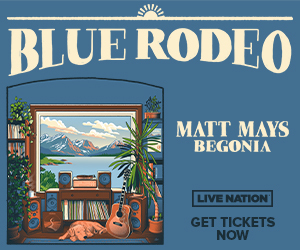Menno Versteeg
As the frontman of HOLLERADO, he was always the life of the party. What Happens when the party ends?
As the frontman of HOLLERADO, he was always the life of the party. What happens when the party ends?
As the fresh-faced frontman of the unfailingly fun indie-rock band HOLLERADO for 13 years, Menno Versteeg was a tireless source of good-natured mischief: blasting crowds with confetti cannons, inviting audience members onstage to play his guitar, partying with fans on the band’s tour bus. In his orbit, everyone seemed to have a good time.
Everyone, it turns out, except Versteeg. Beneath his moppy hairdo and easy grin, he was grappling with depression and bipolar disorder, neither of them properly diagnosed or treated until 2019, the year Hollerado amicably disbanded. By then, the rockstar routine—getting drunk, getting high, getting in trouble—had lost its charm, and Versteeg’s devil-may-care persona felt increasingly contrived.
“I spent a lot of time trying to be something I’m not,” he says now. “A lot of Hollerado was me trying to be this optimistic, positive guy. I hid my dark sides. I really felt like I’d let a lot of people down if I let those parts of me shine through.”
Ultimately, it was comedy that gave Versteeg the freedom to explore and understand his dark side. His wife, the actor Annie Murphy, was a rising star on CBC’s smash series Schitt’s Creek, and her windfall gave him the cash and security to spend time and money on therapy. Those sessions helped Versteeg retire his always-sunny alter ego and, in its place, create a solo project called Mav Karlo—a combination of his initials and
the last name of a friend he’d lost to suicide.
As he sang a powerful verse about finally being able to look at himself in the mirror, he couldn’t see anything but his own reflection: a dozen Menno Versteegs staring right back at him.
To record his first album, Versteeg drove to Reno and checked into a $38-a-night hotel with little more than a beat-up classical guitar and a four-track tape recorder, the same tools he’d used to record the first songs he ever wrote. He spent nine days there recording Reno Tapes, a scrappy lo-fi folk album about his absurd surroundings: weekend dads egging their kids on at the slot machines, drunk Santas-for-hire brawling over a slice of pizza on Christmas Day.
If Reno Tapes was a distraction from Versteeg’s turbulent past, Strangers Like Us, Mav Karlo’s just-released record, is a brutally honest reckoning with it. The songs are pleasant indie-pop gems, dappled with elegantly simple melodies and tasteful kisses of synth, but their lyrics reveal a dark inner monologue. Album opener Elevator is a melancholy plea for stability, tired of extreme highs and lows. On Detonator, he is uncomfortably candid about doing lines in hotel lobby washrooms and waking up late in the afternoon embarrassed by whatever he’d done the night before. Versteeg slowly moves from shame to personal reconciliation in the course of the new album.
“It was a therapy session for me,” he says. Therapy shaped not only Versteeg’s music, but his approach to running Royal Mountain Records, the label he founded in 2009 to release Hollerado’s first album, and which has since launched the careers of home-grown favourites like Orville Peck, Alvvays and PUP. In 2019, Versteeg introduced a mental health fund for each of the 34 artists on the label: $1,500 for therapy, medication and the like. The artists don’t need to pay the label back or explain how they use the money, but many have called Versteeg to personally thank him—one told him, “Thank you for helping me save my own life.”
The fund was the first of its kind offered by a record label, and it turned Versteeg into a minor industry celebrity. International labels flew him to speak on panels overseas. “There was tons of back-patting and ‘way to go,’” he says, but little action. He bristled at the fact that successful multinational labels were celebrating him without following his example. “Everyone was like, ‘You’re doing the right thing,’ and I was like, ‘You should, too!’”
The Royal Mountain fund arrived at the perfect time, just before the coronavirus wiped out touring musicians’ most reliable revenue stream and cast a cloud of uncertainty over their livelihoods—the sort of thing that can exacerbate mental health issues. Mercifully, the pandemic has been relatively kind to Versteeg. It gave him an excuse to slow down after the hectic Hollerado years. He’s healthy, writing new music and, believe or not, touring.
Last month, after sitting out a 14-day quarantine out east, Versteeg debuted the Mav Karlo catalogue in a handful of dates across the Atlantic provinces, where virus cases remain low. Backed up by that four-track recorder, Versteeg strummed his nylon guitar and sang for a series of sold-out crowds—that is, somewhere between 25 and 65 people, sitting in socially distanced clusters. It wasn’t exactly a multi-night stint at the Danforth Music Hall in Toronto, where thousands of frenzied fans said goodbye to his old band. But, in a sense, it was perfect. Versteeg didn’t want people to jump on-stage or dance in puddles of confetti. He just wanted them to listen.
In Fredericton, Versteeg played a dark bar where the crowd had been cordoned into reflective Plexiglas booths. Beyond the glare of the stage lights, the audience was invisible. As he sang a powerful verse about finally being able to look at himself in the mirror, he couldn’t see anything but his own reflection: a dozen Menno Versteegs staring right back at him.









